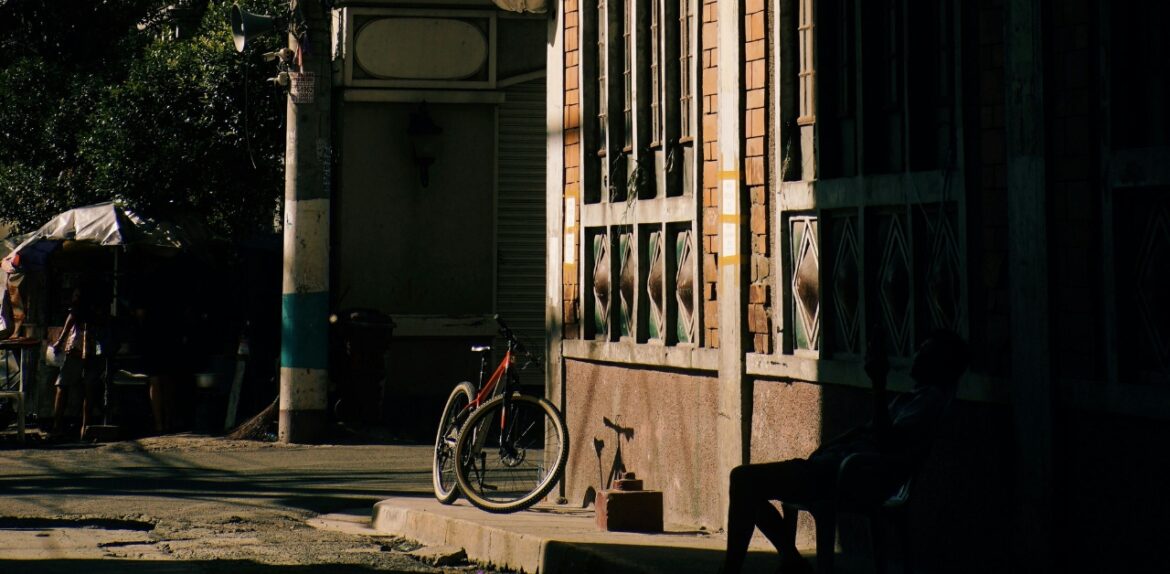We’ve been buying mineral water from a nearby refilling station business for 2 years. They deliver to our house and their service has always been reliable. 2 months ago, a new delivery guy took over. He arrived on time and we had no issues.
This Sunday morning, one of the owners of the water refilling station with another delivery worker went to our house to ask about our recent orders. We confirmed that the most recent one was from last week.
They said that a customer complained that their water tasted different and that the returned gallon of containers were not the same ones they owned. At this business, the water containers are purchased and owned by customers, so the exact same container should be returned for sanitary purposes. Instead, the customer received damaged containers upon delivery. This caused concerned by the owner.
The owner told us what they discovered. The new delivery guy had been refilling at other cheaper stations instead at their refilling station to pocket the price difference. What’s worse, he is their employee and has been using the company’s delivery vehicle where the fuel is paid for by the business.
This is corruption which is a part of a broader and systemic problem in the Philippines.
Lately, we’re sick of hearing about senators, congressmen, and other government officials who are tied to kickbacks in flood control projects and budget insertions. It has been systemic, with government-funded contractors, banks, and other agencies caught in the same loop. Worse, no one’s going to prison yet as a result of this.
As a former bank employee, it also frustrates me to see how banks have become part of this cycle of corruption. They enforce strict regulations and compliance requirements when it comes to ordinary citizens, yet they turn a blind eye to questionable transactions involving government officials. It’s a double standard that reflects how deeply rooted the problem is.
What’s even more disappointing is seeing people within these institutions benefit from it. I’ve witnessed it before. Some receive kickbacks from government-related transactions or third-party agencies they work with. It’s ironic how they live comfortably and flaunt their lifestyle, while rank-and-file employees stay late, work hard, and chase recognition or a promotion. The system rewards the unscrupulous people while punishing those who have integrity.
Filipinos toil to pay taxes from our income, purchases, savings, even until our death, yet we are not given even the bare minimum in public services.
Some days, it feels like there is no hope left. I worry that this will not be fixed in my lifetime. It is unfair to the future generations, to my children, and to my children’s children.
As a result of this frustration, some of us, including myself, often think about migrating to another country just to experience a better quality of life. But what is really a better way to deal with this? Is it to leave the country or do something else?
We should ask ourselves why corruption has become a norm instead of a crime we should collectively reject.
I love the Philippines, but people have learned to love and defend politicians and their parties more than the country itself. Citizens should be defending the nation, not the individuals who hold temporary positions of power. Their roles are fleeting, yet our loyalty to them has become misplaced.
We often point fingers to those in power, but the truth is that corruption survives because we allow it to. Let’s admit that part of the problem lies with us.
It starts during elections. Many of us accept bribes or favors. As a result, corrupt officials end up winning. Then, small compromises are done by turning a blind eye to shortcuts at work and projects or justifying small wrongs because everyone does it. Over time, these small acts shape a culture that normalizes dishonesty. This cycle has been going on long before I or even my parents were born. It’s a shame that we continue to tolerate it until now.
With the scandal that’s continuing to unfold, I’ve been thinking that change is impossible as every generation has been repeating the same mistakes. We fail to hold leaders accountable because many of us are bound by gratitude or loyalty, rather than morals. We forget that the elected leader’s duty is to serve the country and the people, not their interests and pockets.
In the end, I keep thinking about the delivery guy. I respect the hustle and I understand his side of wanting to earn more, but the means do not justify the end. Refilling elsewhere and using the company’s vehicle and fuel is still wrong. It breaks trust, risks people’s health, and hurts a small business that pays him. This is how corruption grows with one small shortcut at a time.
With this, the Philippines badly needs a full overhaul of everything from oversight and accountability, because while the world moves forward and other countries are progressing, we have fallen behind and ordinary people pay for it through a lower quality of life.
If we want better systems, we have to choose integrity even when it costs us which should start with the everyday decisions we face.
Real change starts both from the top and the ground. It begins with parents teaching integrity to their children, schools reinforcing honesty, communities valuing fairness, each of us saying no to bribery even when it’s inconvenient, and doing our part to do what’s right even when no one is watching.
As a 30-year old who’s been listening and writing essays about these kinds of discussion about corruption since my elementary years, I’ve been wanting so bad to have a better Philippines.
It has to start with us, how we think, vote, work, and live. Change has to start with us by refusing to engage in or tolerate dishonest practices, even in our homes and workplaces.
Until we fix our values, no system or leader will ever fix the nation for us.








Leave a Reply